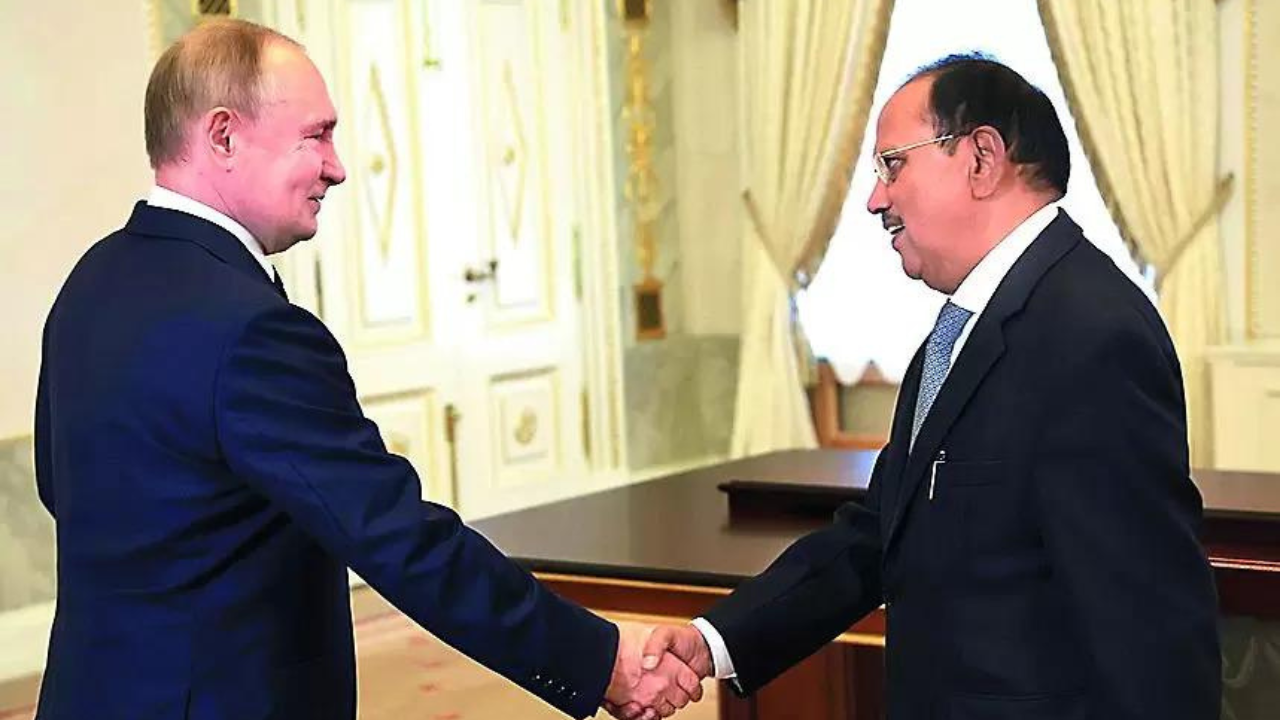NEW DELHI: India and China agreed to redouble their efforts and work urgently to achieve complete disengagement in the remaining areas of eastern Ladakh, which India sees as essential for normalising Sino-Indian ties, in a meeting between NSA Ajit Doval and Chinese foreign minister Wang Yi on the margins of BRICS NSAs meeting in St Petersburg, Russia.
A Chinese readout, which didn’t mention disengagement, said they discussed progress in border talks and agreed stability in ties is in long-term interests of both countries.
The Doval-Wang meeting was the latest in a series of high-level diplomatic engagements in the past couple of months that focused on achieving a breakthrough in the ongoing negotiations to complete the disengagement process and end the military standoff that started in May 2020.
Apart from two rounds of diplomatic talks in the past few months, EAM S Jaishankar also twice met Wang in July on the margins of multi-lateral events.
“The meeting gave the two sides an opportunity to review the recent efforts towards finding an early resolution of the remaining issues along the LAC, which will create conditions to stabilise and rebuild bilateral relations,” said Indian govt .
Doval conveyed to Wang that peace and tranquillity in borders areas and respect for LAC are essential for normalcy in bilateral relations, underlining that both sides must fully abide by relevant bilateral agreements, protocols, and understandings reached in the past by the two govts.
Doval had met Wang on the sidelines of BRICS NSAs meeting in Johannesburg last year too.
Both sides have intensified engagements for disengagement in remaining areas also because they realise any breakthrough can pave the way for a bilateral meeting between PM Modi and Chinese President Xi Jinping at the BRICS summit in Kazan in Oct. The leaders will come face to face for the first time in Kazan since their “informal” meeting at the same summit in Johannesburg last year.
A Chinese readout, which didn’t mention disengagement, said they discussed progress in border talks and agreed stability in ties is in long-term interests of both countries.
The Doval-Wang meeting was the latest in a series of high-level diplomatic engagements in the past couple of months that focused on achieving a breakthrough in the ongoing negotiations to complete the disengagement process and end the military standoff that started in May 2020.
Apart from two rounds of diplomatic talks in the past few months, EAM S Jaishankar also twice met Wang in July on the margins of multi-lateral events.
“The meeting gave the two sides an opportunity to review the recent efforts towards finding an early resolution of the remaining issues along the LAC, which will create conditions to stabilise and rebuild bilateral relations,” said Indian govt .
Doval conveyed to Wang that peace and tranquillity in borders areas and respect for LAC are essential for normalcy in bilateral relations, underlining that both sides must fully abide by relevant bilateral agreements, protocols, and understandings reached in the past by the two govts.
Doval had met Wang on the sidelines of BRICS NSAs meeting in Johannesburg last year too.
Both sides have intensified engagements for disengagement in remaining areas also because they realise any breakthrough can pave the way for a bilateral meeting between PM Modi and Chinese President Xi Jinping at the BRICS summit in Kazan in Oct. The leaders will come face to face for the first time in Kazan since their “informal” meeting at the same summit in Johannesburg last year.

